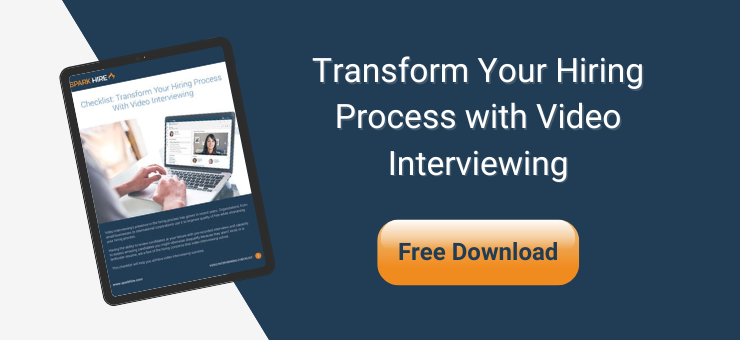Most candidates have an idea of the kind of work environment and culture they thrive in. But many companies have shifted to remote and hybrid work models or have adapted their office space to accommodate for social distancing since 2020. It’s harder than ever to translate to candidates how your company work culture has changed, harder yet when it’s not done evolving.
Ensuring your company culture thrives as your team adapts to updates made in the workforce is critical for both retention and future growth. Perhaps you haven’t paid much attention to culture shifts as you’ve focused on managing your team’s performance and bottom line through recent events.
You may be just now implementing permanent shifts that will impact your work culture. No matter your reason to turn your attention to your company culture, it’s a great time to determine the impacts on your talent management and acquisition strategies.
Here are three important categories in which to identify the key elements of your changing work culture and how you can promote it to find candidates with the best fit:
Can stay the same
Don’t assume everything that inspired your pre-pandemic work culture needs to go! What is it your team loved the most about their day-to-day before there was social distancing, remote work, and hybrid work models? For example, did they love your open floor plan because they could chat and collaborate freely? Maybe you can’t have employees leaning into each other’s desks for the foreseeable future, but you can provide them with means to work together just as effectively.
Keep in mind, it’s your job to provide your team with the resources they need to nurture the workplace culture, but it’s everyone’s responsibility to engage in it. If there is a critical aspect of your culture employees feel strongly about maintaining, encourage them to share their ideas with you and explore options to preserve it as much as possible.
Many companies that returned to work over the last year implemented new health and safety protocols that have allowed employees to more-or-less work together in a normal manner. Others have shifted their whole work model meaning some aspects of their work culture have had to abruptly evolve for remote and hybrid teams. The good news is, this has created opportunities for companies offering HR tools and resources to innovate and provide adaptations for teams to stay connected and engaged in their company cultures.
Most importantly, incoming talent wants to know that your team can persevere. While you’ve had to adapt to some changes over the last year or two, your company culture is grounded in core values your team can preserve in the face of adversity. You can show off your steadfast commitment to supporting your company culture to attract candidates who are searching for reliability and security in their new jobs.
5 Questions to Ask When Evaluating Your Company Culture
Should be updated
You may be surprised if you’ve audited your team for work culture feedback at how much you can make work for your new workforce. But you may be more surprised if you’ve learned there were elements of your work culture employees were happy to see change.
For example, your team may have loved to catch up over the copy machine but were not thrilled with your paper filing system. Social distancing or even working from remote locations may remove your customary copy and coffee chat, but it also allows you to improve the ways your team can collaborate and communicate.
A benefit of updating your tools and resources to enhance your employee experience and performance is you’ll have a great new feature to leverage in attracting top talent. Candidate expectations have shifted over the last few years. Many job seekers are looking for companies that can show their resilience and ability to adapt so their employees can stay successful no matter what challenges they face. This includes preserving your company culture but also enhancing it as the need arises.
Be transparent with candidates about how your team has adapted to changes and overcome obstacles to keep your company culture thriving. If you’ve updated to new tools to simplify tasks or improve collaboration on projects, be prepared to answer questions about how those changes affected employee performance, morale, and camaraderie.
Here’s how to make your company culture stand out to candidates.
Needs to change
You can’t fix everything with a new chat feature. In fact, you may need to change some ways in which your team works together and interacts entirely. This is less likely to occur if your whole company has returned (or plans to return) to work in the office. But that doesn’t mean you shouldn’t look into ways to improve on your work culture no matter where and how your employees work together. Complacency seldom boosts productivity or morale.
Throughout transitions your team has made since the global pandemic, you may have noticed a drop in these key drivers of success in the workplace. This is because instability and uncertainty are more menacing when team members cannot find a way to unwind, have fun, take breaks, and brighten each other’s day as they did before.
Mental health should be front of mind as you look for ways to adjust to your new work culture. Introducing tools and resources that help employees find outlets and the support they need to adjust to your shifting work culture can range from therapy and meditation apps to virtual games and team events.
Team engagement – It’s hard for some team members to stay engaged or feel valued by their teammates if they can’t interact and get the daily affirmations they need. Employee and peer recognition platforms can support your team to boost morale and encourage high performance naturally. Nectar and Bonusly are two great examples of HR tools you can use alongside your workforce management apps to recognize achievements and nurture engagement.
Meetups and events – Holiday parties, birthday celebrations, major life events, and professional milestones – even happy hour or team jersey days help unite employees on a personal level. If your work model has shifted, missing these opportunities to connect could impact your work culture. Fortunately, more resources are available than ever before to host fun virtual events.
For example, reELIVATE offers virtual team activities like cooking classes, escape rooms, scavenger hunts, even wine tastings designed to help corporate teams stay connected. Much the same as booking an event space or ordering entertainment and catering, you can determine your budget and plan your virtual party around your number of expected ‘guests.’ You may even find team members who were shy about participating in group activities will feel comfortable getting in on the virtual fun.
Virtual meetings – If your team looked forward to a Monday-morning meeting when everyone had coffee and donuts together to kick off the week pre-pandemic, it can be hard to adjust to reconfigured workspaces or remote team dynamics. Or maybe you didn’t put a lot of stress into getting the whole team together frequently because you didn’t need to – team collaboration and interaction were par for the course day-to-day. But now, employees seldom chat, they just keep work funneling through the appropriate channels. This disconnect can be draining and destroy a workplace culture fast.
Keeping your team connected through video technology ensures face-to-face communication skills stay sharp and relationships stay strong. You can update your HR process from hiring through employee management and engagement by carefully selecting a video platform that supports all of your team’s needs. Look for features such as scheduling tools to streamline team collaboration, video messaging you can customize for any occasion, one-way and live video capabilities, and tools to simplify team decision-making.
Your company’s work culture may look a bit different now, but by preserving what you can, updating what you should, and changing what doesn’t work, you can boost retention and improve hiring outcomes in one fell swoop. It’s said that change takes time, but sometimes it’s just time for a change.












